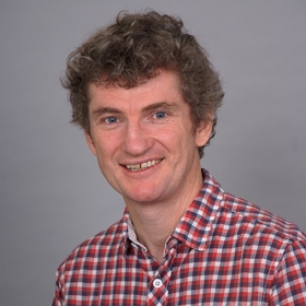NDARC’s Professor Anthony Shakeshaft (pictured) has today been announced as one of the chief investigators of an NHMRC Centre for Research Excellence to develop Indigenous researchers who can help identify and evaluate solutions to alcohol problems.
The Centre for Research Excellence (CRE): Building Indigenous research capacity to find solutions to alcohol problems will be an alliance of Indigenous leaders, health services, clinicians and researchers from across the country. It aims to develop, expand and evaluate an integrated suite of workforce development, prevention and treatment programs to reduce alcohol-related harm among Indigenous Australians. It will have a central focus on building and supporting a cohort of Indigenous researchers to find solutions to alcohol problems.
The CRE’s senior leadership team comprises academics from UNSW (Professor Shakeshaft), the University of Sydney (Professor Kate Conigrave, CRE lead investigator) and Indigenous leaders Mr Scott Wilson (Director, Aboriginal Drug and Alcohol Council of South Australia) and Associate Professor Noel Hayman (Clinical Director of the Inala Indigenous Health Service).
“A key reason this CRE is so important,” said Professor Shakeshaft, “is because it will start to redress the current overwhelming focus on describing problems and harms among Indigenous Australians and instead focus on finding effective solutions, at least for alcohol harms.
“The only way we will be able to find sustainable, effective solutions is if the approaches are developed and led by Indigenous Australians,” he added.
The problems alcohol imposes on Indigenous people and communities are severe. Indigenous people are, for example, up to eight times more likely to be hospitalised, and five times more likely to die from an alcohol-related condition, than non-Indigenous Australians. Factors such as grief, loss, trauma and marginalisation put Indigenous Australians at greater risk of alcohol problems if they drink. Alcohol problems can then make the individual’s and the family’s situation worse. Research published by the new Centre’s chief investigators reveals that women often bear a heavy burden from alcohol-related harm: Indigenous women aged 30 to 44 years are 18 times more likely to be victims of violence or homicide than non-Indigenous women.
“Understanding these problems has been an important, and necessary, step over the previous decades,” said Professor Shakeshaft, “but it is time to now refocus on reducing those harms.
“I see the role of the new Centre as a critical mechanism to bring together the evaluation and research skills of senior academics with the clinical and cultural expertise of Indigenous experts.
“It’s an exciting and outstanding opportunity to start to work on solutions.”
Three other NDARC academics have been awarded fellowships in today’s NHMRC announcements.
Also successful in today’s NHMRC announcements is Associate Professor Katherine Mills, who has been appointed an NHMRC Senior Research Fellow. The fellowship will support her work focusing on improving treatment responses for co-occurring mental and substance use disorders.
Early career fellowships were awarded to Dr Gabrielle Campbell for a study into pharmaceutical opioids for chronic non-cancer pain, and Dr Katrina Champion for her work on an online intervention program for Australian adolescents.
Note to editors:
Indigenous research projects currently being led by Professor Shakeshaft include:
- Reducing alcohol-related injury and violence in rural Aboriginal communities
- BackTrack: The effectiveness of a multi-component intervention for young people with multiple and complex needs
- Preventing and treating drug and alcohol harms in remote communities
- The feasibility and effectiveness of a family-based intervention for Indigenous Australians with alcohol dependence
Media contacts:
Marion Downey: P: (02) 9385 0180 | 0401 713 850 | m.downey@unsw.edu.au
Leanne Mezrani: P: (02) 9385 0124 | 0432 894 776 | l.mezrani@unsw.edu.au






